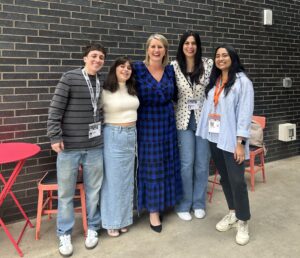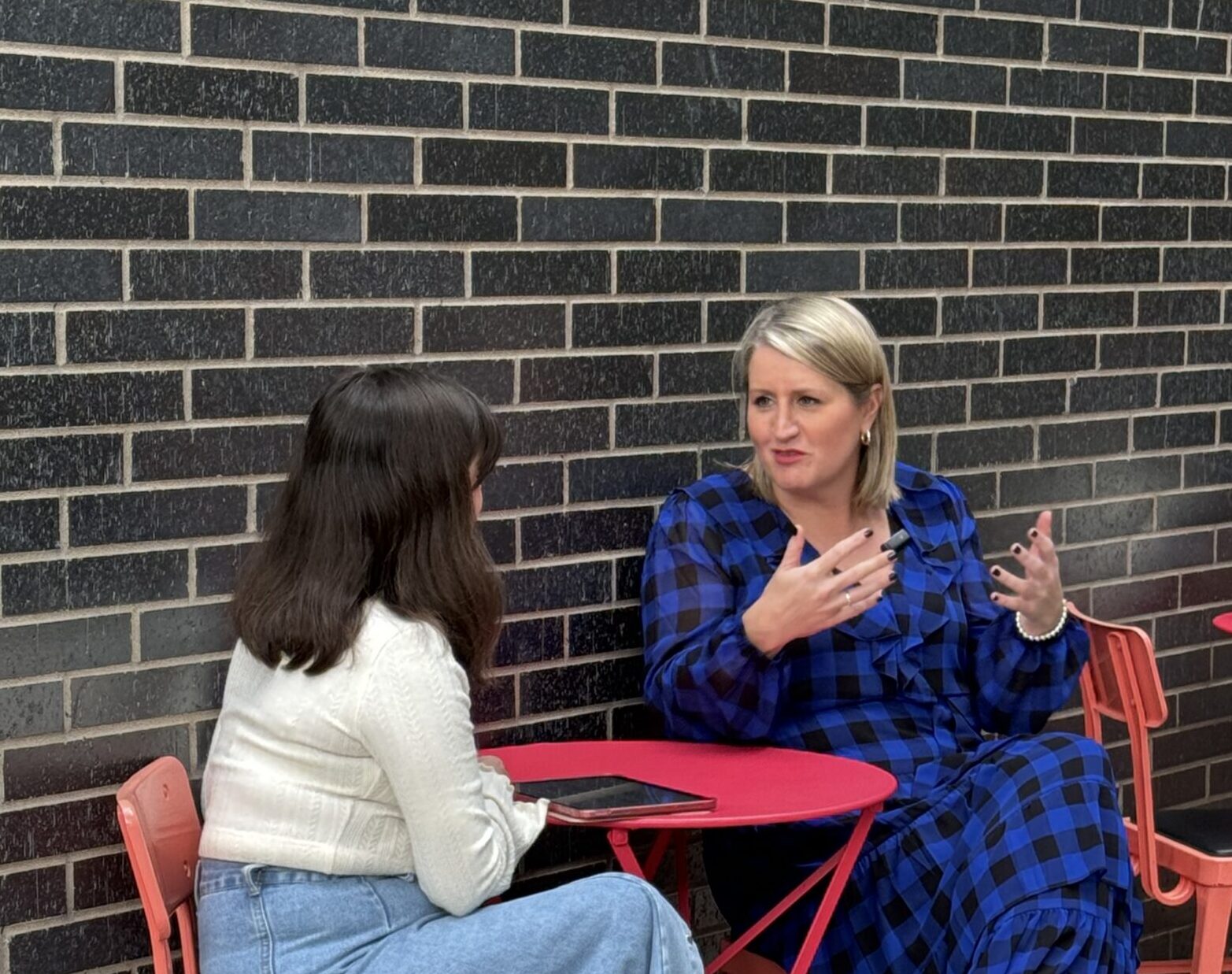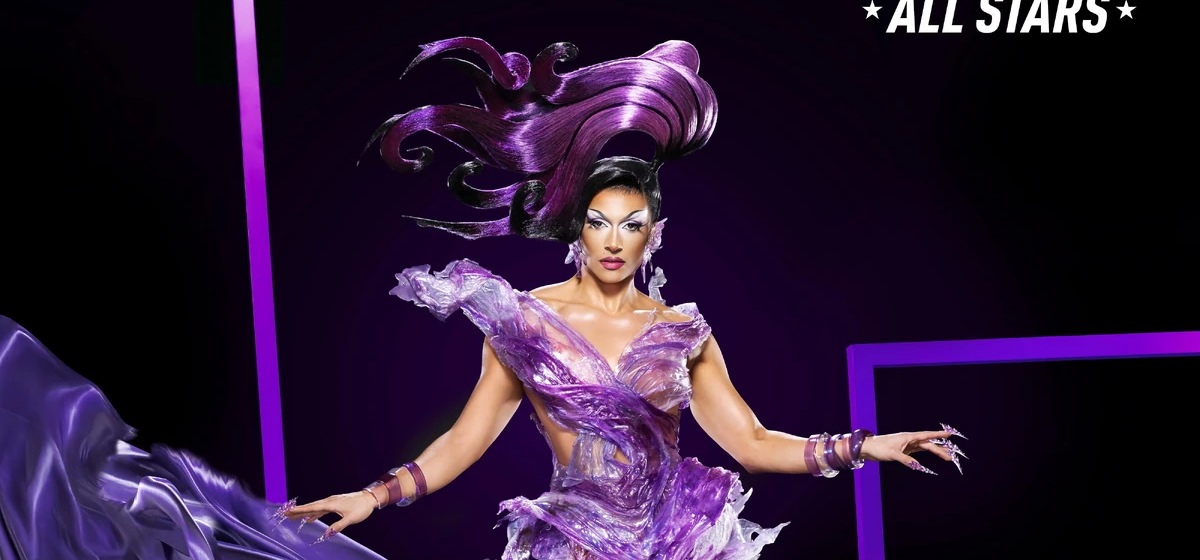This past week, Latinitas had the true privilege of being in the presence of Under Secretary for Public Diplomacy, Elizabeth Allen. A true visionary, and inspiring woman working in the US Department of State to make a positive change in the world. Following her inspiring SXSW panel with Latina musician Gina Chavez, Latinitas was able to speak with her on the importance of Music Diplomacy, her exciting feelings about emerging technology, and so much more. Please enjoy our conversation with the inspiring Elizabeth Allen.
Today I am honored to be joined by Under Secretary for Public Diplomacy, Liz Allen for the US Department of State, who is coming at us straight from a panel here at SXSW on Music Diplomacy titled “SXSW People’s Playlist: Diplomacy and American Music Panel”. Under Secretary Allen, for those unaware, could you please give us a little background information on the PEACE through Music Diplomacy Act President Biden signed into effect last year and the cultural significance music has played in American diplomacy?
Wow, sure! Thank you, and I am so honored to be talking about this from Austin and in Austin and with all of you, because Austin is one of the great music cities in the world, as Austinites know. But people around the world should know that Austin is one of the great music cities of the world, and that the creativity and the innovation here and the authentic storytelling and the ability for people to use their voice actually really is exactly what matters in diplomacy.
So to the second part of your question, I think a lot of people think about diplomacy and they think about handshakes in front of flags or deals being signed. And the reality is diplomacy and deals like that and finding solutions to challenges, those things are only possible when you have relationships built between each other, right? And so we think a lot at The State Department about how to build relationships between people around the world, current leaders, future leaders, youth that are going to go on to become leaders. If we can hope to drive progress in the world, we have to do that through making people relate to each other and find a reason to have common ground, to come around a table and think about how to chart the future. So, music is a huge part of that.
I think everyone who loves music would agree that music is a universal language. Music is a medium that transcends divisions, transcends borders, gives people a way to express themselves that can be really resonant and authentic. And so music has been used as part of U.S. State Department diplomacy for decades. We’ve sent artists overseas. We’ve welcomed artists into U.S. embassies around the world. And we believe that music, like many forms of culture, art, storytelling, filmmaking, is a way to bring people together to talk about issues. And so the question about the PEACE and Diplomacy Act and I’m so glad you asked about this.
The thing that’s really important is this is a bipartisan issue. There aren’t many of these days! But the good news is for leaders in Washington and leaders around this country, there’s a recognition that music is a way for people to talk to each other and exchange ideas that creates creative space, authentic space, safe space. And so when we think about the ways music can be used internationally, it does lead to more peace, it does lead to more stability, it does lead to more democratic outcomes in us understanding each other. So we were really proud to have President Biden sign that act in the fall. And then, at the U.S. State Department, we’ve rolled out a brand new initiative called the Global Music Diplomacy Initiative. We’re working with the Recording Academy, with YouTube, with independent artists, with embassies around the world on how to lift up the voices of creators and artists, and also how to train the next generation of music professionals. I’m not going to go on any longer, because that was too long.
No, that was amazing!
But I would like to give a foundation of why this matters so much. Like our Secretary of State, Tony Blinken, says, music is the common heartbeat of our humanity, and it matters so much to lift up the voices of artists.
No, I could hear you talk forever. I very much agree, as any Houstonian, Austinite would agree. Music is just so incredibly important. So, you also expressed an interest in emerging technologies like AI, here at Latinitas, that’s part of what we do. So, what are some of the ways in which you see technology contributing positively to the promotion and preservation of democracy?
I love this question because this is like exactly what we are trying to think about at the State Department! What policymakers in Washington, D.C. We are seized with this question because I’m sure, like a lot of people who are listening and consuming your content, everyone’s thinking about AI I think with a little bit of trepidation.
Yes.
And there’s good reason for that, right? We know that AI used for bad could certainly lead to harmful outcomes. And so as a policy matter, we are working on making sure that AI is regulated in a way that reduces its harms. We want to make sure that it can’t be used as a weapon. We want to make sure that we limit inauthentic or “deep faked” content, or at least that we can identify it and give people a sense of what the truth is in the information space. It’s another thing I feel strongly about. But as we work to reduce the potential harms of AI, we absolutely have to harness the opportunity. And when we think about how to democratize the world and communities, we think AI is really an accelerator for progress. I hear from people all over the world who think that AI is going to be their solution for education, for health care, for figuring out how to do better crops and agriculture, which leads to more sustainable hunger solutions in communities. I mean, I think that AI and emerging tech can never replace in-person interaction, but it is a way to scale potential solutions and to let people tell their stories.

Yes, I mean, it’s a tool, like anything it needs policy but it also can do so much.
It can do so much! And I think about the young women, let’s just say across Latin America who are craving access to more educational resources. Think about what AI and emerging tech through the Internet and through social media could do to give them access to, for example, language training or curriculum. Right? Or I think about the young people I just met in India, in Sri Lanka, who are thinking about how to access healthcare and healthcare resources through emerging technology and AI that really resonates as opportunity for us.
Fully. So for the panel today, you were joined by Latin musician Gina Chavez–
Oh, I’m her new biggest number-one fan.
Yes! Why is it important to recognize Latinas as crucial components of the American experience in diplomacy?
So I have sort of two thoughts on this and Gina’s testimony today, her personal story really has stuck with me. It was so powerful because, on one hand, it’s important to make sure that Latinas have a voice at any table. But we should also recognize that much like women overall, Latinas aren’t a monolith. Every Latina woman has their own story and so just like people say, well, women are at the table, I’m like, which women are at the table, right? So I would say that we need to be thinking about how to make sure that voices are represented, that equities are represented, that stories and backgrounds are represented in any kind of policy and regulatory conversation. But also we need to be recognizing that everybody has a story to tell. Everybody has something to share. And from where I sit in Washington, we can only make better policy, we can only lead to more inclusive, equitable solutions if we know what’s on people’s minds. If we know what they’re thinking, what matters to them? And so Latinas are an enormously important part of not just helping shape policy and outcomes, but also being part of those conversations.
Yes! I love everything you said. It’s just–such good answers, obviously! Okay, Latinitas will be hosting members of European Parliament with the German Marshall Fund next week. We are very excited. So are there any organizations that you’ve visited through your work in diplomacy that have inspired you?
That’s really great. And I have to say, the EU is a great partner to the U.S. I just last night here in Austin at SXSW met with the EU deputy commissioner. Her name’s Margrethe Vestager and she is a leading women leader across the world, and we talked about how our teams are doing so much work on emerging technology regulation, on countering disinformation, on lifting up free media to say nothing of AI, emerging tech and all the other challenges around the world. So I’m really glad you’re doing that.
You know, in my experience, I started out my career after I graduated from college working on women’s issues and human trafficking issues, and so I was doing that at the U.S. Department of State. And I feel really fortunate now, 20 years later, to have an opportunity in this job to scale as much as possible. And so women’s issues have always been near and dear to my heart. So organizations like Vital Voices, organizations like Girls in Tech, we really seek out overseas finding exactly what you described, which are where is the intersection of tech, education, and women, because that is how we power the future.
Yes.
And if I may, we’re really trying to create and scale programs from the US government standpoint to do exactly that. We have a program called Tech Women, and then we have a program called Tech Girls, and women from all around the world are given mentorship opportunities, internship opportunities, reasons to come to the United States. But more important than that, reasons to talk to each other. And that’s huge. And we have we have women’s mentorship programs in sports and in fashion and in any kind of private sector industry. It’s critically important. So I take a lot of inspiration from outside organizations, and then we try to channel that into what kind of programs we can help sponsor to be effective.
Well, first of all, I just want to say thank you so much for everything you’ve done, all those issues are so genuinely near and dear to me as well. So that’s incredible and truly you’ve changed so many lives and helped a lot. I have one silly little end question. If you could choose one song that you feel embodies peace, either world peace or inner peace, what would it be?
Wow, that’s a really good question. And I need to think about it because I’m going through my musical repertoire. To be clear, I am no artist, [Under Secretary Allen laughs] but I am an enormous music consumer and this may be a little bit of a cliché answer, but I’m going to give it anyway.
Okay!
“What a Wonderful World” has really stuck with me throughout my whole career. When I was a student, I studied abroad, and I had the opportunity to go to ten countries in one semester when I was a sophomore in college. And we got on a ship and we sailed around the whole world and that is where, as a 19-year-old, I feel like I became a citizen of the world. Not just a citizen of the United States, and it is what drove me to this kind of work, to think about it takes all of us to create change. How can I be most useful? And on that semester at sea, on that study abroad journey, we would play “What a Wonderful World” to remind ourselves of the potential that we have. Not to paper over the challenges, but to know that it takes all of us to make that world better. And so I’ve carried that ever since I was a student, now working at the State Department. So that’s stuck with me.
That is not a basic answer, that’s an amazing answer! You have a tie to it. Emotional connection and it’s lyrically perfect.
Thank you for the question. What would you have us at the State Department know about the work you’re all doing?
I would say that we really value bilingual STEM education, and we’re trying to raise accessibility for Latinas. We want more Latinas in tech, we want more Latinas to be seen, represented, and that comes with funding certain, I would say that comes with funding certain nonprofits and certain businesses that are trying to do that and trying to create mentorship opportunities for women and girls. So like you said, so we see ourselves represented. So we know that we can do that. That’s what we try to do here at Latinitas. We tried to start them at nine years old so they know they can be business leaders, they can be tech entrepreneurs, they can be everything. And it’s something I really passionately feel. And so, yes, please, yes, you know, put Latinas on your radar. Be aware of us, we’re here.
This is like an amazing mission. And I’m so glad to be sitting down with you. I’m so honored. And I think two things you said that really stuck with me. One is mentorship. This is hugely important. It’s always been important to me. I just had a conversation with a number of women and girls in India when I was in Mumbai a few weeks ago about this issue. And I would just say I’ve been a lucky benefit of mentors my whole life, but what’s really important, I think, is we all climb through our careers, no matter what we’re doing, is peer mentorship. I don’t know if you all feel the same way, but I learn from my peers.
Yes, fully.
I need to gut-check things with my own colleagues and that kind of sort of horizontal mentorship, as we all kind of come up together I think is super important. So I’m super I’m really enthusiastic about you guys doing that. And then to your point, let’s just let’s get Latinas not just in the door, but in the c-suites in boardrooms. This is true of women all over. We have a lot of work to do. And as my team, my team knows, I’m known for saying that. But incremental change is still change. You know, we have to keep driving, recognize that change is being made and keep driving for more. So thank you for the work you’re doing now.
No, of course, and thank you for being here and talking to me. Under Secretary Liz Allen, it has been an absolute honor. And thank you so much.
Thank you so much. I can’t wait to come back to Austin.











